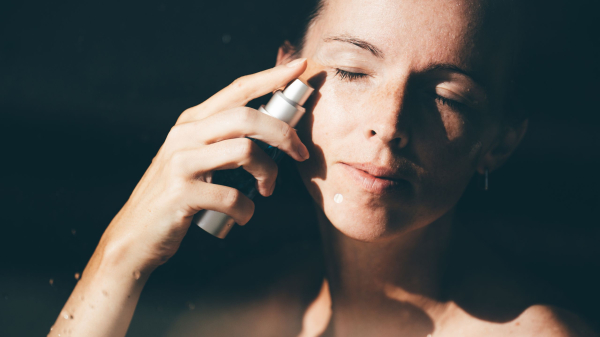 Source image: Maria Korneeva/Getty ImagesSave this storySave this story
Source image: Maria Korneeva/Getty ImagesSave this storySave this story
All products featured on Allure are independently selected by our editors. However, we may receive compensation from retailers and/or from purchases of products through these links.
The best retinol creams can be skin-care godsends, whether you’re struggling with acne, fine lines, dark spots, drooping, dullness, or large pores. If you’re not hip to retinoids—the catchall term that refers to all vitamin A derivatives, including retinol—we’ll give you a crash course. "[Retinol] can help stimulate cell turnover as well as help stimulate collagen production," Ron Robinson, a cosmetic chemist and founder of BeautyStat, previously told Allure. This allows the active ingredient to unclog pores, minimize the look of wrinkles, and improve your skin’s elasticity all at once. In other words, adding retinol can be a smart way to give your skin-care routine a boost—helping with common goals like smoother texture and a more even tone.
Not sure whether to grab a cream or a serum? Think of serums as the more potent, fast-absorbing option, while creams provide an extra hit of moisture and tend to play nicely with sensitive skin. It really just depends on what your skin can handle (and what it needs most).”
Our Top Retinol Creams
- Best Overall: Alastin Skincare Renewal Retinol 0.25, $74
- Best for Beginners: Eau Thermale Avène RetrinAL 0.1 Intensive Cream, $79
- Best for Advanced Users: SkinCeuticals Retinol 1.0, $102
- Best Customizable: Sungboon Editor Deep Collagen Retinol Power Boosting Capsule Cream, $26
- Best for Dry Skin: Dr. Few Clean Retinol, $195
- Best Antioxidant: SkinMedica Age Defense Retinol Complex, $80
- Best Lightweight: Elizabeth Arden Retinol and HPR Ceramide Rapid Skin Renewing Water Cream, $103
- Best for Mature Skin: Dr. Dennis Gross Intense Wrinkle Cream, $77
- Best Drugstore: La Roche-Posay Redermic R Retinol Cream, $55
Frequently Asked QuestionsLargeChevron
Most dermatologists recommend starting with retinol just once or twice a week to help your skin build tolerance, then slowly working up to every other night or nightly as your skin adjusts. Always follow with moisturizer and wear broad-spectrum SPF daily, since retinoids can make skin more sun-sensitive. Start with one of our expert-approved favorites below.
Best Overall: Alastin Skincare Renewal Retinol 0.25
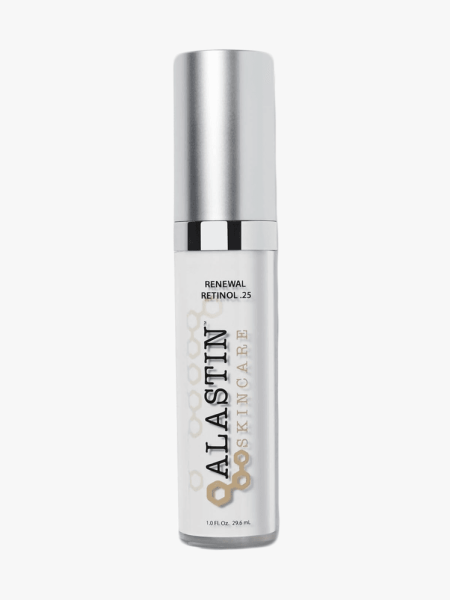
Alastin Skincare
Renewal Retinol 0.25
Amazon
Alastin Skincare
Why it's worth it: What makes Alastin Skincare’s Renewal Retinol 0.25 stand out is its lipid-encapsulated form of retinol, meaning it supplements the active ingredient’s tone- and texture-evening effects with moisturizing lipids (ceramides, specifically). To double down on its soothing, no-sting claims, this retinol treatment is spiked with two skin-calming favorites: oat extract and silver mushroom, the latter of which also has hydrating properties that give hyaluronic acid a run for its money. It contains a low dose of 0.25% encapsulated retinol, but those who are advanced retinol users can opt for the higher-strength 0.5% formula.
Allure commerce contributor Deanna Pai applying the Alastin Skincare Renewal Retinol 0.25
Deanna Pai
Allure commerce contributor Deanna Pai after applying the Alastin Skincare Renewal Retinol 0.25
Deanna Pai
Tester feedback from contributing editor Deanna Pai
LargeChevron
“I was able to use this with no acclimation period—gasp!—which is a big deal, since I’ve experienced the retinol-newbie flakes as an over-confident 20-something. It’s never once irritated my skin, even on the coldest of winter days, and while I still get the occasional hormonal breakout, I’ve found that this dispatches zits and the requisite acne scars more quickly.” —Deanna Pai, contributing editor
More to know
LargeChevron
- Other key ingredients: oat extract, ceramides, silver mushroom
- Who it's for: those looking to target texture concerns with minimal-to-no sting
- Fragrance-free: yes
- Retinol concentration: 0.25%
Best for Beginners: Eau Thermale Avène RetrinAL 0.1 Intensive Cream
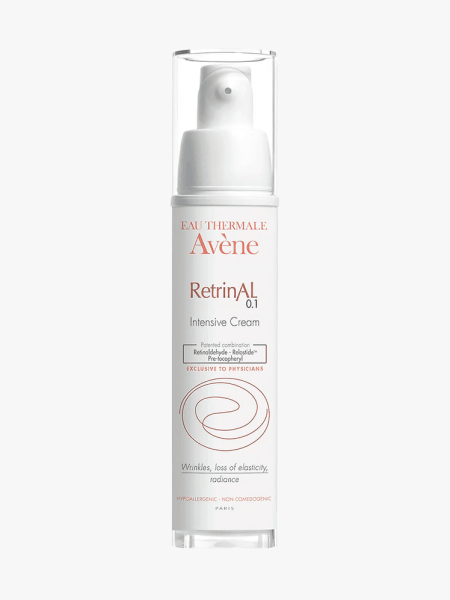
Eau Thermale Avène
RetrinaL 0.1 Intensive Cream
Dermstore
Why it's worth it: The Eau Thermale Avène's RetrinAL 0.1 Intensive Cream is powered by retinaldehyde (commonly called retinal)—a sister ingredient to retinol that’s known to be more potent and less irritating. TLDR: It’s fast-working and highly effective. It’s combined with the brand’s Thermal Spring Water, which soothes and calms the skin in the event of irritation. Plus, vitamin E swoops in with antioxidants to protect your skin from future sun damage and signs of aging caused by free radicals. With regular use, the brightening cream smooths and evens skin, adding to a healthy-looking glow.
Contributing commerce editor Annie Blackman applying the Avène RetrinAL 0.1 Intensive Cream
Annie Blackman
Contributing commerce editor Annie Blackman after applying the Avène RetrinAL 0.1 Intensive Cream
Annie Blackman
Tester feedback from contributing commerce writer Annie Blackman
LargeChevron
"I'm new to retinoids, plain and simple. I've been more aware of my frown lines recently and wanted to start my retinol journey. This bottle of Avène goes easy on my skin, has a lovely light and creamy consistency, and paired with my Dieux Instant Angel Moisturizer, it's a total breeze. I've noticed some amped-up glowiness and am eager to see where the whole thing goes." —Annie Blackman, contributing commerce writer
More to know
LargeChevron
- Other key ingredients: vitamin E, peptides
- Who it's for: everyone
- Fragrance-free: yes
- Retinol concentration: 0.1% retinal
Best for Advanced Users: SkinCeuticals Retinol 1.0
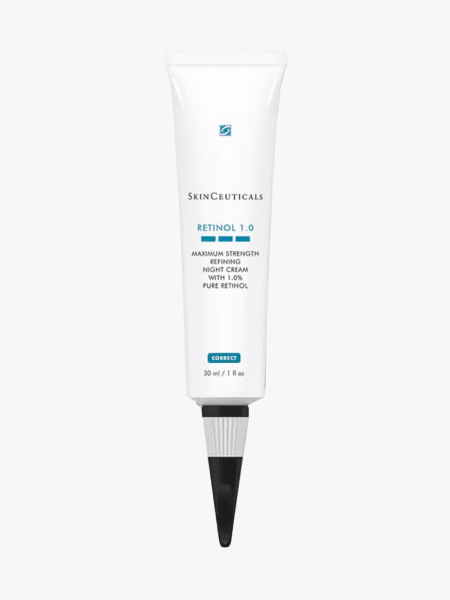
SkinCeuticals
Retinol 1.0
Dermstore
Bluemercury
SkinCeuticals
Allure contributor Marci Robin applying the SkinCeuticals Retinol 1.0
Marci Robin
Why it's worth it: While anyone (with the budget) can slather on SkinCeuticals products, those with more mature skin can benefit the most from its lineup of science-backed formulas. Case in point: Retinol 1.0, which the brand literally bills as a "retinol face cream for advanced users." This higher concentration means more effective skin cell turnover and smoother, clearer skin. To counteract any irritation or redness, there's a calming blend of bisabolol (derived from chamomile) and boswellia serrata extract (derived from frankincense).
If you’re just starting off with retinol, go with Retinol 0.3, a beginner-friendly concentration that is gentler on the skin before advancing to Retinol 0.5, and finally Retinol 1.0.
Tester feedback from contributor Marci Robin
LargeChevron
"I've been using retinol on and off for a good 15 years in my pursuit of smoother and more even skin, so I can comfortably use SkinCeuticals' highest concentration of the gold-standard cell-turner-overer (not a word, but go with it). The bisabolol in the formula definitely helps soothe any irritation, too." —Marci Robin, contributor
More to know
LargeChevron
- Other key ingredients: bisabolol, boswellia serrata extract
- Who it's for: people who are experienced with retinol, people with mature, oily, or combination skin
- Fragrance-free: yes
- Retinol concentration: 1%
Best Customizable: Sungboon Editor Deep Collagen Retinol Power Boosting Capsule Cream
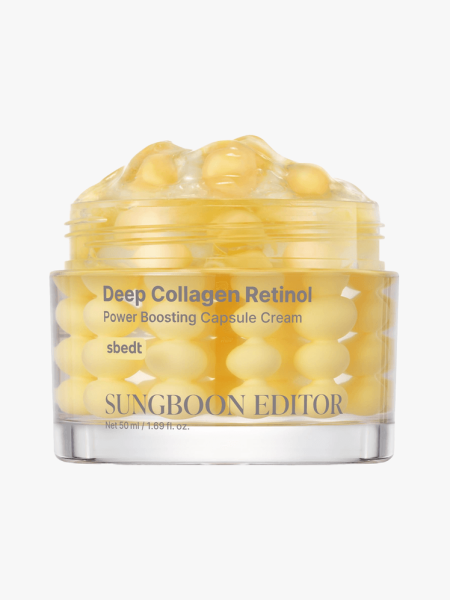
Sungboon Editor
Deep Collagen Retinol Power Boosting Capsule Cream
Amazon
Ulta Beauty
Allure commerce editor Sarah Han applying Sungboon Editor Deep Collagen Retinol Power Boosting Capsule Cream
Sarah Han
Why it's worth it: K-beauty is all about the sensorial experience, and just one glance at the bright yellow retinol capsules suspended in this plush gel-cream lets you know you’re in for a truly pampering moment. Sungboon Editor’s Deep Collagen Retinol Power Boosting Capsule Cream pairs micro-capsulated retinol with hydrolyzed (low-molecular) collagen—smaller collagen peptides that sit on the skin’s surface to deeply hydrate and help it look firmer and smoother. Thousands of pore-sized spicules deliver a gentle, prickling “needling” sensation that helps actives sink in deeper while encouraging cell turnover. Even better, the formula is fully customizable: Mix more capsules with less gel for dry skin (2:1), maintain a balanced consistency for normal skin (1:1), or dilute with extra gel for oily or sensitive types (1:2). It’s retinol tailored to the perfect strength and texture, all in one jar.
Tester feedback from commerce editor Sarah Han
LargeChevron
“Leave it to Sungboon Editor to make retinol…fun? The experience of scooping out the sunshine-yellow capsules is a delight and the gel is really refreshing—perfect for calming down my skin after a long day. I like layering my more hydrating essences and serums—peptides, growth factors, you name it—before slathering on a 1:1 ratio of this capsule cream to balance out my combo skin. I know the jury is still out on spicules, but I find that this cream is gentler and less alarming than the more intense spicule serums I've tried—just my two cents!” —Sarah Han, commerce editor
More to know
LargeChevron
- Other key ingredients: collagen, hyaluronic acid, panthenol
- Who it's for: all skin types
- Fragrance-free: yes
- Retinol concentration: not disclosed
Best for Dry Skin: Dr. Few Clean Retinol
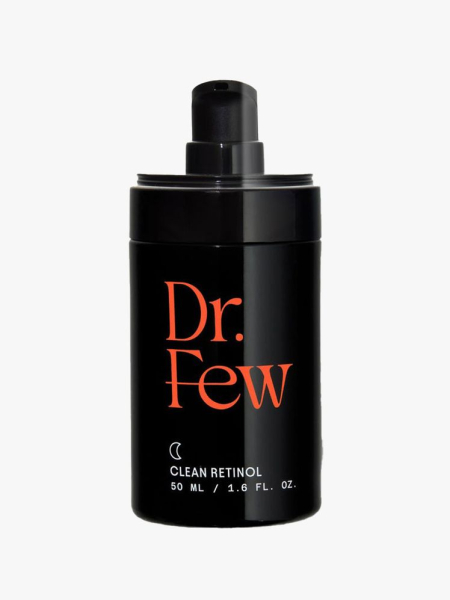
Dr. Few
Clean Retinol
Neiman Marcus
Goop
Why it's worth it: Dr. Few’s Clean Retinol is a multitasking formula that blends retinol with potent active ingredients and botanicals to deliver visible improvements to even the most sensitive skin. Retinol fades fine lines and wrinkles, peptides support collagen production, and antioxidant-rich green tea extract shields against pesky free radicals. Still on the fence? This antioxidant-packed formula also helps brighten and even out skin tone, and our editors have found it gentle enough even for dry skin.
Allure Shopping director Shanna Shipin applying the Dr. Few Clean Retinol
Shanna Shipin
Allure Shopping director Shanna Shipin after applying the Dr. Few Clean Retinol
Shanna Shipin
Tester feedback from shopping director Shanna Shipin
LargeChevron
“As someone with super dry, eczema-prone skin, retinol is an ingredient my current (and past) dermatologists have advised me against for years—for good reason! When I hit 33 and the strain of new-mom years began to show, however, I was determined to try and incorporate the powerhouse ingredient into my routine. This beauty from Dr. Few is it. The formula has a limited ingredient list and is rich in skin-nourishing oils and peptides that leave you with a comfortable, hydrated feel. It's all helping avoid dermatitis flare-ups and any kind of adverse reaction to the retinol—including peeling or redness—as I ramp up usage. While I await its wrinkle-smoothing benefits, the cream has already helped me avoid acne breakouts.” —Shanna Shipin, shopping director
More to know
LargeChevron
- Other key ingredients: argireline, matrixyl, green tea hydrosol
- Who it's for: people with dry, sensitive skin
- Fragrance-free: yes
- How often to use it: nightly
- Retinol concentration: 0.2%
Best Antioxidant: SkinMedica Age Defense Retinol Complex
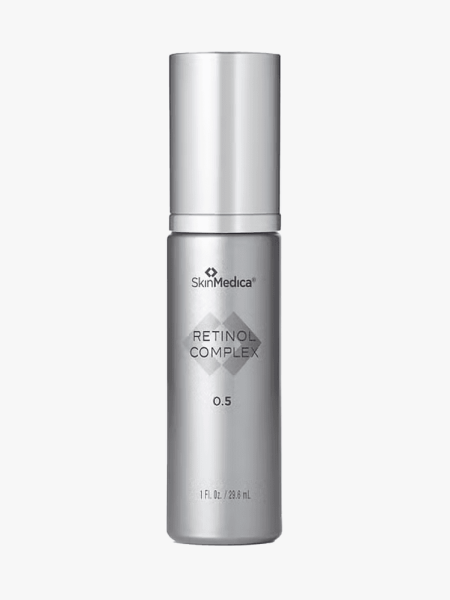
SkinMedica
Age Defense Retinol Complex
Amazon
Dermstore
Allure contributing commerce editor Deanna Pai applying the SkinMedica Age Defense Retinol Complex
Deanna Pai
Why it’s worth it: If your budget allows, SkinMedica’s Age Defense Retinol Complex is well worth the splurge. “This product is a straightforward, science-backed retinol that I recommend to patients looking for a no-nonsense option,” says Shannon Humphrey, MD, a board-certified dermatologist based in Vancouver, Canada. Packed with antioxidant-rich niacinamide, soybean oil, squalane, and vitamin E, the formula helps minimize irritation while keeping skin supple. “It’s available in three retinol concentrations (0.25%, 0.5%, and 1%), which allows patients to gradually build tolerance while still benefiting from clinically validated improvements in lines, tone, and texture. The formula is elegant and hydrating, making it easier to incorporate into a consistent regimen over time,” says Dr. Humphry. If jumping straight into prescription retinoids has been too intense in the past, “this cream is a gentle way to eventually work your way up to stronger options like tretinoin,” adds David Kim, MD, a board-certified dermatologist in New York City.
Tester feedback from Pai
LargeChevron
“I've never been loyal to a retinol, but this has worked for well that I keep coming back to it: I've never experienced any kind of irritation (though I'm not a beginner) and I've seen a big improvement in my breakouts and hyperpigmentation. It also absorbs instantly and doesn't have a noticeable scent—two big pluses for me.” —Pai
More to know
LargeChevron
- Other key ingredients: niacinamide, squalene, soybean oil, vitamin E, coconut oil, glycerin
- Who it's for: all skin types
- Fragrance-free: yes
- Retinol concentration: 0.25%, 0.5%, 1%
More retinol creams we love:
Best Lightweight: Elizabeth Arden Retinol and HPR Ceramide Rapid Skin Renewing Water Cream
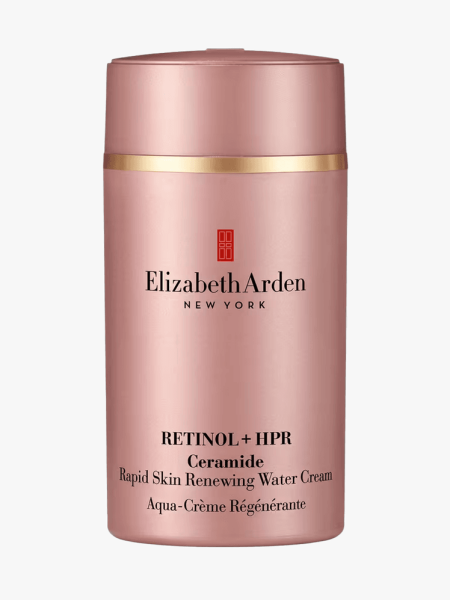
Elizabeth Arden
Retinol and HPR Ceramide Rapid Skin Renewing Water Cream
Amazon
Ulta Beauty
Why it's worth it: Elizabeth Arden’s Retinol + HPR Ceramide Rapid Skin Renewing Water Cream comes in a sleek pump-top jar that dispenses the perfect amount while keeping things sanitary and the formula fresh. Along with classic retinol, it uses HPR (short for hydroxypinacolone retinoate), “which is a newer form of retinoid that’s experiencing a surge of popularity,” says Vivian Bucay, MD, a board-certified dermatologist based in San Antonio, Texas. HPR binds straight to your skin’s retinoid receptors without extra conversion steps. This means it gets right to work on smoothing lines and brightening without the usual “retinol freak-out” dryness. “HPR is also more stable and, bonus, tends to be gentler and less irritating than traditional retinol,” says Dr. Bucay. Ceramides also help strengthen your skin barrier, while peptides and hyaluronic acid flood your skin with moisture for a plump, dewy glow. While the brand doesn’t share the exact retinol percentage, HPR is considered one of the most potent and effective retinoid forms available in over-the-counter skin care.
More to know
LargeChevron
- Other key ingredients: peptides, phytoceramides, hyaluronic acid, bisabolol, ginger root
- Who it's for: people with fine lines and wrinkles or dryness
- Fragrance-free: no
- Retinol concentration: not disclosed
Best for Mature Skin: Dr. Dennis Gross Intense Wrinkle Cream
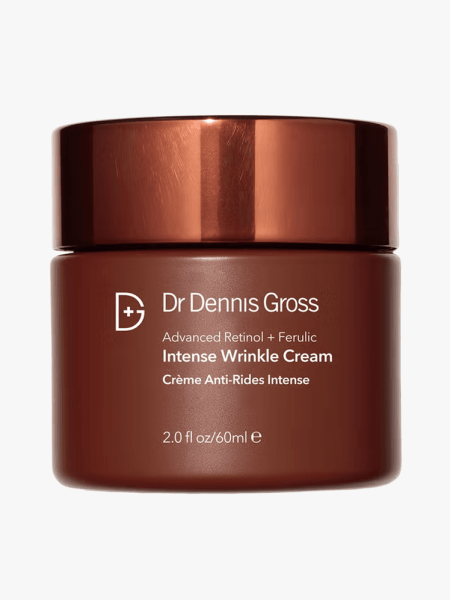
Dr. Dennis Gross Skincare
Intense Wrinkle Cream
Amazon
Nordstrom
Dermstore
Why it's worth it: Chasing quick results? Dr. Dennis Gross’s Intense Wrinkle Cream targets fine lines, wrinkles, and uneven tone with visible improvements in as little as two weeks. Powered by the brand’s Phyto-Retinol Blend, it combines trans-retinol (the classic form your skin readily converts to retinoic acid) with encapsulated retinol that releases gradually for a gentler, less irritating boost. “It also features bakuchiol, a plant-based retinol alternative, to tackle fine lines and boost collagen for a more even tone and texture,” says Corey L. Hartman, MD, a board-certified dermatologist based in Birmingham, Alabama. The rich, cushiony formula is ideal for dry or mature skin, though oily or acne-prone types may find it a bit heavy, notes Dr. Hartman.
More to know
LargeChevron
- Other key ingredients: bakuchiol, ferulic acid, rambutan, centella asiatica
- Who it's for: people with wrinkles, dryness, and uneven skin tone
- Fragrance-free: yes
- Retinol concentration: not disclosed
Best Drugstore: La Roche-Posay Redermic R Retinol Cream
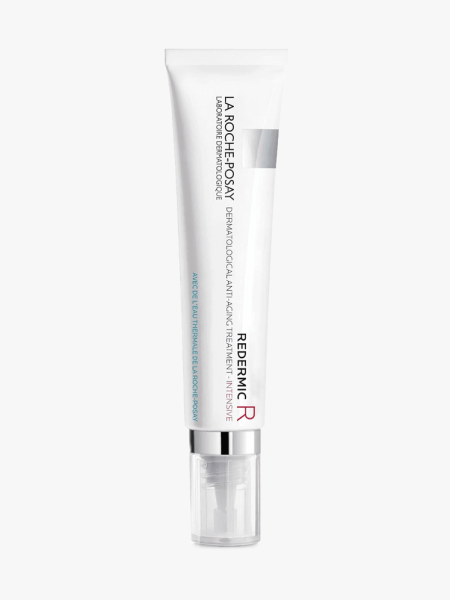
La Roche-Posay
Redermic R Retinol Cream
Amazon
Ulta Beauty
Why it's worth it: Whether you’re dealing with sensitive skin, rosacea, undereye puffiness, or more, La Roche-Posay has a solution for just about everything, so it’s no surprise derms love the brand’s retinol, too. “R Retinol Cream combines pure retinol with retinyl linoleate, which gives a gradual-release effect that’s less irritating for sensitive skin,” says Hannah Kopelman, MD, a board-certified dermatologist based in New York City. This slower delivery makes it a more approachable option for those nervous about irritation. “It’s a good choice for someone newer to retinol but ready for more than an entry-level formula,” she says. The formula’s “lightweight, fast-absorbing texture means it layers beautifully under moisturizer without pilling,” and with consistent use, “I’ve seen it improve fine lines and overall skin texture without the harsh dryness some stronger serums cause,” she says.
More to know
LargeChevron
- Other key ingredients: lip-hydroxy acid, glycerin, thermal spring water
- Who it's for: people who are beginners to retinol
- Fragrance-free: no
- Retinol concentration: not disclosed
Frequently Asked Questions
What is retinol?
Retinol is a transformative skin-care ingredient otherwise known as pure vitamin A. Retinol is an example of a retinoid—which is the catchall term for these A-based formulas, over-the-counter (OTC) and prescription varieties alike, like tretinoin. (Adapalene is the only prescription-level retinoid available over the counter—Differin Gel Adapalene Gel 0.1% is a popular option.) This active vitamin A binds with receptors, causing them to function in a healthier capacity, thus increasing cell turnover and collagen production. This directive can translate to countless improvements, like balanced pigment production for fewer dark spots, smoother skin, and tighter-looking pores.
"The increase in cell turnover helps unclog pores," Sheila Farhang, MD, a board-certified dermatologist based in Tucson, Arizona, previously explained. "This also helps decrease the appearance of brown or red post-acne spots—post-inflammatory hyperpigmentation—as well as help collagen synthesis for acne scarring," Dr. Farhang added.
How should I use retinol?
"When it comes to a retinol cream, it's important to know what percentage of retinol is included in the formula to determine if the product is actually going to deliver all the glorious benefits vitamin A has," says Dr. Kim. "Studies have shown that retinol is about 10 times less potent than prescription-strength retinoic acid, so I usually recommend products with at least 0.25% retinol."
First-time users should start by using retinol once or twice a week, gradually increasing to every other day—if your skin can handle it, you can bump up to nightly use. Regardless of how often, there might be a brief adjustment period that causes some irritation, which is normal.
Over-the-counter vitamin A formulations, like those with retinol and retinaldehyde (often shortened to retinal), tend to be weaker because the skin has to convert them to retinoic acid before they can take full effect. With any retinoid, especially if you have sensitive skin, practice restraint and apply a pea-size drop only one or two nights a week until your skin acclimates.
According to Chicago-based dermatologist Caroline Robinson, MD, it's best not to mix retinol with benzoyl peroxide. When used together, they can cancel each other out, which means neither works as well as it should. Still, you can separate the two and use benzoyl peroxide in the morning and reserve retinol for nighttime application. Similarly, if you want to use both vitamin C and retinol in your skin-care routine, use vitamin C during the day and retinol at night.
Other no-nos? Mixing retinol with alpha-hydroxy acids (AHAs) and beta-hydroxy acids (BHAs) will result in major irritation and barrier disruption. Dermatologists recommend alternating the days you use AHA and retinol, or replacing salicylic acid with peptides—the latter enhances the penetration of retinol.
Will retinol irritate my skin?
Everyone’s skin reacts differently to retinol, but as a guideline, New York City-based board-certified dermatologist Hadley King, MD, reminds us that some degree of irritation—like dryness, peeling, redness, flaking, and burning—can be anticipated and should subside by the fourth week. You can also buffer your retinoids with a dollop of anti-inflammatory serum or lotion—ideally, formulas spiked with niacinamide, polyphenols, lipids, and ceramides.
It’s also key to start your retinol journey with a lower-potency option. "Look for [something] like retinyl propionate, as it's much milder on the skin as compared to pure retinol," Joshua Zeichner, MD, a board-certified dermatologist based in New York City, previously told Allure. "You can think of it as an entry-level version."
What are retinol alternatives?
If you have sensitive skin, are pregnant and/or breastfeeding, or simply don't want to deal with this active's side effects (stinging, flaking, and skin purging, to name a few), you can consider the retinol alternatives explained below.
Bakuchiol
Bakuchiol is the most well-known retinol alternative out there for its gentler profile and impressive fine line-smoothing results. "Bakuchiol, like retinol, works by increasing cell turnover, thereby stimulating collagen production and diminishing wrinkles, skin laxity, and overall photo-damage," Ellen Marmur, MD, a New York City-based board-certified dermatologist, previously told Allure without the sting commonly associated with retinoids.
Niacinamide
If discoloration is your concern, niacinamide is the antioxidant for you. "Niacinamide works with your skin's natural chemistry to improve overall skin texture by rebuilding a lipid layer, minimizing the appearance of pores, and preventing UV damage and inflammation as an antioxidant," Seattle-based board-certified dermatologist Brandith Irwin, MD, previously told Allure. Also known as vitamin B3, this powerhouse ingredient evens skin tone, minimizes redness, and reduces inflammation.
Peptides
Last but certainly not least are peptides, a must-have for diminishing the look of wrinkles and firming up sagging skin. Dr. Kim previously told Allure that peptides are designed to boost and replenish amino acids, which are the building blocks for collagen production. Often recommended for mature skin, peptides can help reduce the appearance of fine lines and leave skin looking tighter.
Meet the experts
- Vivian Bucay, MD, a board-certified dermatologist and founder of Bucay Center for Dermatology and Aesthetics, based in San Antonio, Texas
- Anna Chacon, MD, a board-certified dermatologist based in Miami
- Sheila Farhang, MD, a board-certified dermatologist and founder of Avant Dermatology & Aesthetics, based in Tucson, Arizona
- Corey L. Hartman, MD, a board-certified dermatologist and founder of Skin Wellness Dermatology, based in Birmingham, Alabama
- Shannon Humphrey, MD, a board-certified dermatologist and medical director of Humphrey & Beleznay Cosmetic Dermatology, based in Vancouver, Canada
- Brandith Irwin, MD, a board-certified dermatologist, based in Seattle, Washington
- Viktoryia Kazlouskaya, MD, PhD, board-certified dermatologist and CEO of Dermatology Circle, based in New York City
- David Kim, MD, a board-certified dermatologist at Idriss Dermatology, based in New York City
- Hadley King, MD, a board-certified dermatologist, based in New York City
- Hannah Kopelman, MD, a board-certified dermatologist at Kopelman Hair Restoration, based in New York City
- Joshua Zeichner, MD, a board-certified dermatologist and director of cosmetic and clinical research in dermatology at Mount Sinai Hospital, based in New York City
How we test and review products
When Allure tests a product, our editors look at it from every angle in an effort to best serve you. We review ingredients, scrutinize brand claims, and, when necessary, examine peer-reviewed scientific and medical studies. In addition to testing each and every product that's included in each and every review, we rely on experts who shape their fields, including dermatology, cosmetic chemistry, and medicine, to help us vet the ingredients and formulas.
For our list of retinol creams, we considered each product's performance across five primary categories: product ingredients and efficacy, packaging, fragrance, texture, and product wear. Every product was determined to have excelled in each category by our editorial team, which is composed of in-house writers and editors as well as contributors—along with special consideration from board-certified dermatologists. To learn more information on our reporting and testing processes, read our complete reviews process and methodology page.
Our staff and testers
A beauty product is a personal purchase. You might be searching for a face cream to address persistent dryness or a new nail product to add to your Sunday self-care routine; you may simply be browsing around for the latest launches to hit the hair market. No matter what you seek or your individual needs and concerns, Allure wants to ensure that you love anything we recommend in our stories. We believe that having a diverse team of writers and editors—in addition to the wide range of outside testers and industry experts we regularly call upon—is essential to reaching that goal.
After all, can we really say a skin-care product is the "best" for people over 50 if the only testers we've solicited opinions from folks who have yet to hit 30? Can we honestly deem a high-end diffuser worthy of your hard-earned cash if it’s never been tested on curls? We're proud that our staff spans a wide range of ages, skin tones, hair textures, genders, and backgrounds, which means that we are able to fairly assess any beauty product that comes into the beauty closet.
There's a treasure trove of skin care beyond retinol to tackle all of your concerns—and best of all, each pick below is Allure-approved:
- Allure Best of Beauty Awards 2023: Skin Care
- The Best Korean Skin-Care Products That'll Transform Your Complexion
- The 12 Best Eye Creams for Wrinkles
- The Best Face Masks for Mature Skin for Intense, Comforting Hydration

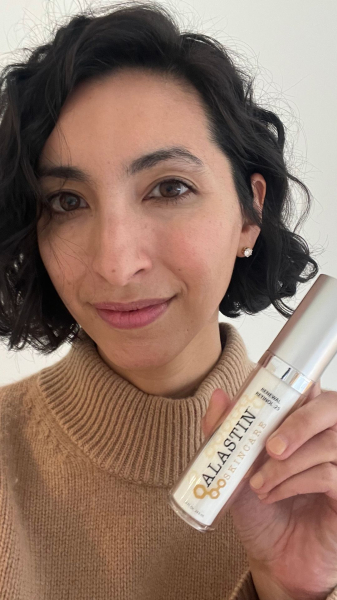
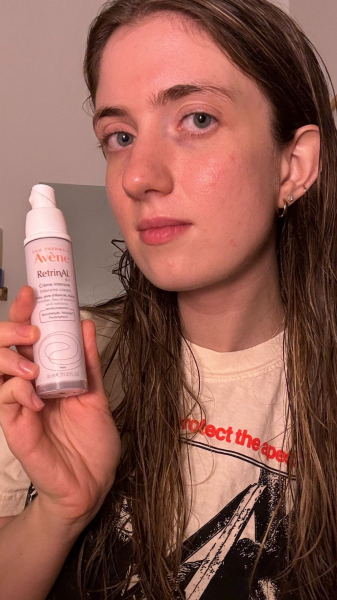
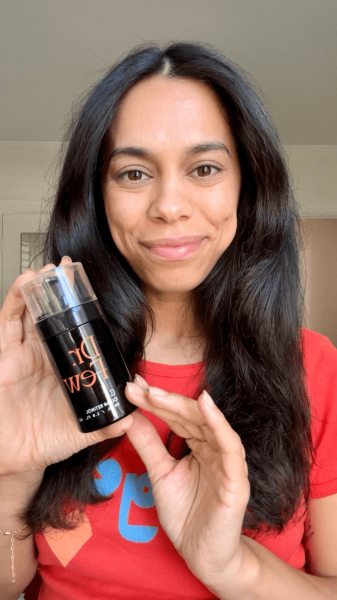
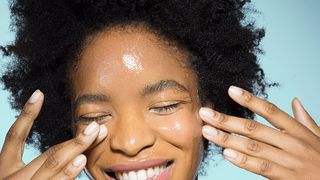
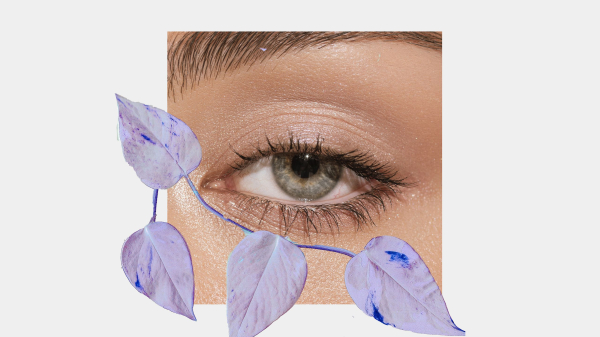
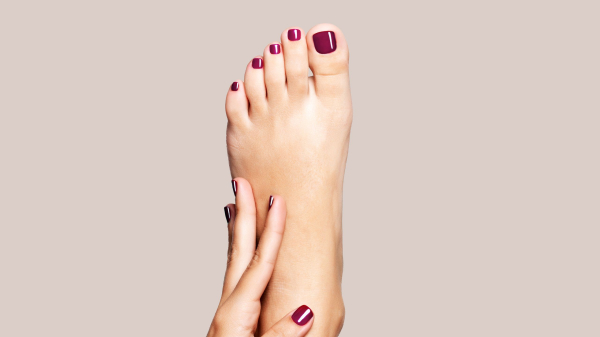
Leave a Reply